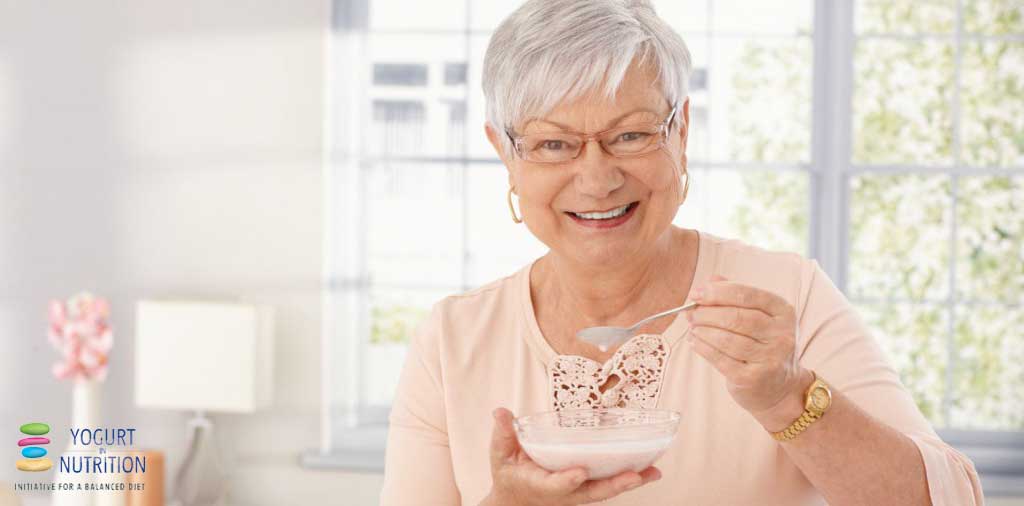Contrary to long-held beliefs, drinking large amounts of milk has recently been linked with increased risk of hip fracture. This study in older women of different combinations of milk or fermented milk and fruit and vegetable intakes shows that high consumers of fermented milk products (i.e. yogurt, soured milk) and fruit and vegetables have the lowest risk of hip fracture.
In the past, milk consumption has been recommended to promote strong bones and reduce the risk of fractures. More recently, high milk consumption has been linked to an increased risk of hip fracture and raised markers of oxidative stress and inflammation, particularly in women. Oxidative stress is implicated in age-related muscle and bone loss, which increase the risk of hip fracture as we get older.
The authors investigated whether the antioxidants in fruit and vegetables could counteract the association between high milk consumption and increased risk of hip fracture. They also compared milk with fermented milk products.
In this population-based study, middle-aged and elderly Swedish women completed a food frequency questionnaire during 1987–1997. Over a median follow-up of 22 years, 5,827 of the 99,311 women suffered a hip fracture.
Drinking more milk is linked to higher hip fracture rates
Regardless of the women’s intake of fruit and vegetables, higher milk consumption was associated with an increased risk of hip fracture.
Hip fracture rates were highest in women who drank a lot of milk but ate few fruits and vegetables. Compared with the reference group who drank less than one glass of milk per day with a high intake of fruit and vegetables [≥5 servings/day]), those who drank at least three glasses of milk per day and ate less than two servings of fruits and vegetables per day had a 2.5-fold higher risk of hip fracture.
High intake of fruit and vegetables provides only modest protection from milk-linked hip fracture
Compared with the reference group, a high intake of milk (≥3 glasses/day) plus a high intake of fruit and vegetables (≥5 servings/day) was still linked with a 2.1-fold higher risk of hip fracture.
Fermented milk products are linked to lower hip fracture rates
Fermented milk products showed a very different pattern of association with hip fracture. Low intake of yogurt and soured milk was associated with high rates of hip fracture.
Hip fracture rates were lowest among women with a high intake of fermented milk products in combination with a high intake of fruit and vegetables. Compared with women who consumed little fermented milk and fruit and vegetables, high consumers (≥2 servings/day of fermented milk and ≥5 servings/day of fruit and vegetables) had a 19% lower rate of hip fracture.
Fermented milk products may induce less oxidative stress and inflammation than milk
The findings may be due to possible probiotic antioxidant and anti-inflammatory actions, effects on the gut microbiota, and the lower content of lactose and galactose in fermented milk products compared with milk. The pro-oxidant properties of milk may be induced by the galactose component of lactose.
Find out more: read the original article.



